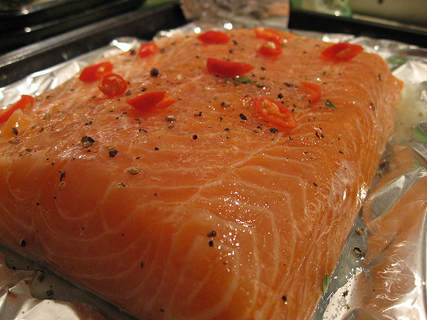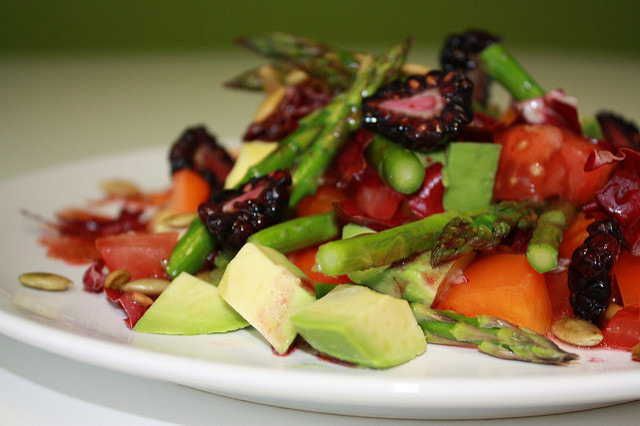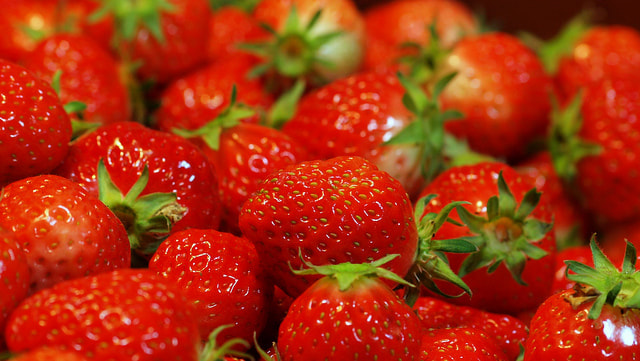The unfortunate consequence of fat phobia is that we have deprived our bodies of an essential nutrient that is critical for brain and hormone health. This malnourishment has contributed to a large collection of illnesses and compromised brain function. There is a lot to get over, in terms of mindset, around fat, but I encourage you to experiment and begin incorporating more healthy fats into your diet. Look forward to the following positive results from eating more healthy fats.
Ok, so ready to incorporate more fat into your diet? Get started by focusing on these healthy and optimal sources:
In addition to these top seven healthy fats, consider enjoying whole nuts and seeds as well. Eating whole nuts and seeds, that have been cleaned and soaked are a good source of fat and protein, plus fiber and other nutrients (like selenium in brazil nuts). Many people cannot tolerate nuts and seeds, which is why they didn’t make the top seven list here, but if you can, enjoy adding nuts into your diet as well. I recommend soaking them overnight so they are easier to digest and rotating nuts so you aren’t eating the same ones every day. If you’ve been following a low-fat or fat-free diet, then I hope you will consider making some changes. Fat is such an important and vital nutrient for our overall health and can make a drastic difference towards feeling great when we start incorporating more into our diets. And I get that this is a big topic to unravel. If you want more science, check out this article that breaks down the chemical structure of fats.
1 Comment
The term antioxidants is commonly thrown around now as health concerns and prevention of cancers and degeneration are widespread topics. But what exactly does it mean?
Well, antioxidants are anti (against) oxidants. They clean up oxidants. But what are oxidants you ask? Basically, during the metabolic process, that is when we break down foods for energy, there is a natural byproduct, or waste product. These byproducts to the metabolic process are called oxidants, or reactive oxygen species, or free radicals. Normally, with a balanced diet of whole unprocessed foods, these free radicals are easily cleaned up by the antioxidants in our food. Problems arise when we have more free radicals than can be cleaned up naturally. And high amounts of oxidation occur from diets that are high in sugar and omega-6 fats. These two components put too much stress onto our metabolic process when consumed in high amounts, resulting in high amounts of free radicals.Too much free radicals leads to oxidative stress and oxidative damage. High oxidative stress, or chronic oxidative stress is a cause for chronic inflammation. Think of it like there is a big mess from too much sugar and omega-6 fats and the immune system is having to work overtime to clean it up and as a result damage is happening to normal organ tissue in the body. Just about all chronic illnesses, including autoimmune conditions, diabetes, cancers and neurodegenerative disorders are linked to chronic inflammation. An excess of omega-6 fats from cereals, processed foods, and especially vegetable oils and spreads increases the risk of inflammatory, neurological, and degenerative diseases. These studies indicate strongly that limiting our intake of omega-6 is essential to the health of our brains. For example, researchers have found a link between Alzheimer’s Disease and increased levels of an omega-6 fat called arachidonic acid, which they believe interferes with the brain’s nerve cells, causing overstimulation; lowering these levels lets the cells function normally again. Changing our diets to reduce our intake of refined sugars, omega-6 fats, and highly processed and chemicalized foods will reduce oxidative stress and reduce overall inflammation, thereby reducing our risk for chronic illness and debilitating disease. So, sugar is something worth reducing our intake of, not only because of the above reasons, but also because it can have such a drastic effect on our energy levels and mood. Check out this article on ways to reduce sugar cravings. And become a label reader. Sugar has many forms and it’s best to be aware of hidden names and sources so you can be an informed consumer. While you are decreasing your intake of refined sugars and omega-6 fats, go ahead and start including these delicious antioxidant powerhouses into your diet:Organic wild blueberries, raspberries, blackberries, cranberries, elderberries
Breaking the sugar habit is hard for everyone. And more than willpower, it is our biology that is driving the boat. Making successful changes in diet requires compassion and gentleness. Forcing ourselves to do anything, to restrict our “treats” is a deprivation model and we will only rebel against it in the end.
The best place to start is by adding in more nutrient rich foods, such as organic fruits and vegetables, high quality organic protein sources with every meal, adequate amounts of healthy fats, and complex carbohydrates. Fill your plate with healthy choices and focus on bringing in more nutrients that will lead you towards optimal health, weight, and mood, rather than looking at restricting anything. And here are 10 Tips for taking the next steps to finally break that habit and begin achieving your personal health and wellness goals! 10 Steps for Dealing with Sugar Addiction
It was my pleasure to talk with Rebecca L. Mahan of the Rebecca Sounds Reveille show on TLBTV. We discussed my book, Eat to Beat Alzheimer’s: Delicious Recipes and New Research to Prevent and Slow Dementia.
Check it out! I'd love to know what you think! Now that Spring is in full bloom, have you felt any inklings to make diet changes?
I often notice with the changes in season that my food desires also change. Some of this has to do with food memory, like craving pumpkin pie and green chili stew in the fall. But if you check in on a more subtle level, there is inherent body wisdom in these changes as well. Our animal selves are tuned into the cycles and rhythms of nature, even if we are unaware of it. And studies on circadian rhythms show that the more aware we are of this connection with nature (time outside, exposure to natural light, and eating with the seasons), the healthier we are likely to be. Eating with the seasons generally means we eat more of what is in season, or what can be grown and harvested at the time. f we take it a step further into some deeper science, we can also eat seasonally to consciously replenish stores of vitamins and minerals that will help us maintain nutrient balance throughout the year. When I think of Spring, I think of new growth, green grasses, flowers and trees blooming, bees are starting to hum and rain is washing everything clear and waking up all the seeds that have been dormant underground. Bitter greens are typically the first to arrive and can tolerate the swinging temperatures of Spring from nice warm days to frosty mornings. Bulbs and rhizomes are sending out new shoots and greenery. Spring is the time to start eating some raw vegetables again, especially greens. It is a great time to incorporate more salads into your meal plans. Try these greens for a spicy, and powerfully detoxifying Spring salad:
In addition to greens, this can also be a time to capitalize on the body’s natural inclination to cleanse after a long winter. Winter is typically, in nature, a time of slower activity and reserving energy. I often feel a bit sluggish in very early Spring, which is my own sign that it is time to start changing up my activity level and diet because winter is over! As soon as I do that I feel my own energy shift and increase in alignment with the bigger changes in the environment. Incorporating more lemon into your diet and beverages adds a boost for natural and easy detoxing. In addition to lemon, apple cider vinegar is also a helpful and gentle ingredient to incorporate more and can be a guard against Spring ailments. Try them this way:
If we look to nature as a guide, we can find some helpful tips.As it warms up and the days lengthen we naturally are pulled to more activity and outdoors time. After spending much of our time indoors all winter, we may naturally be depleted in essential Vitamin D. The best way to get Vitamin D is from direct sun exposure. Try spending about 15 minutes outdoors with some skin exposed. No sunscreen! If you just give yourself daily exposures you will be able to convert that sunlight into important Vitamin D and build tolerance back up in your skin from being covered up all winter. Reserve that sunscreen use for prolonged exposures that will be too much for your skin type and tolerance. Some foods to incorporate as well for their Vitamin D content are:
Giving my body and my brain the best choices I can always makes me smile and feel good! So get out, get moving, and get cooking and eating some delicious Spring meals! And just like April showers bring May flowers, stay hydrated and drink plenty of water! A big part of building trust with ourselves is being willing to listen. The choices we make based on that information is the next step. Mind you, I am certainly not promoting perfection or idealism here. It is completely important to have flexibility and fluidity, especially with diet and lifestyle. In fact, the rigid voice inside that allows for zero wiggle room, may not be the voice to ultimately listen to or take at face value.
The perfectionist inside is not the boss, she is just highlighting how we’ve tried to manage our fear and vulnerability. Conscious wellness is not about living and eating perfectly. It is about knowing yourself and honoring that relationship.Going out to dinner and having some wine with friends might be totally worth it for the positive benefits of social time and fun and laughter. It might be completely appropriate to do this and take the cost that a few drinks might do to our health to have the benefit of a good time. But maybe this isn’t the rule because there might be a day where physically you are already stressed, say from too little sleep or not enough nutrients, or exposure to illnesses or other stressors. In that case, the cost might not be worth the drinks. So you see, we are not static either and it is always worth it to take account of the context of things, rather than make decisions or “rules” in a vacuum and call that health. Building trust with ourselves is an ongoing dynamic willingness to relate to ourselves.It is the opportunity to master ourselves in relationship to whatever task the world offers us, from the very small choices to the very big challenges. Who we are is a fluid, breathing organism, affecting and being effected by the environment in which we live. We are not meant to master each task with perfection like some outdated achievement model. We are meant to discover who we are, and to continue exploring the depths of our Being, so that we can ultimately be living in a harmonious way. Through listening inwardly, we build trust in who we are and choose ever more subtly this deeper alignment. Conscious Wellness isn’t about having perfect bodies, or even perfect health. It is about really and truly being yourself, at the deepest level you can and being willing to continue on, as Rumi says, “to flow down and down into ever widening rings of being.” |
Archives
July 2018
Categories
All
|







 RSS Feed
RSS Feed